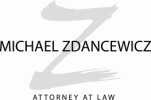 A lien on real property is created when a deed of trust is properly recorded. “Foreclosure” is the term for the legal process by which a creditor attempts to recover the loan balance from a borrower by forcing the sale of the asset used as collateral for the loan.
A lien on real property is created when a deed of trust is properly recorded. “Foreclosure” is the term for the legal process by which a creditor attempts to recover the loan balance from a borrower by forcing the sale of the asset used as collateral for the loan.
The deed of trust foreclosure process and requirements vary from state to state. In some states,a purchase money promissory note secured by a deed of trust may be an anti-deficiency loan. An anti-deficiency loan is secured by the lien on the collateral, but the borrower is not obligated to repay any deficiency balance between the value of collateral and the amount of the debt. If the borrower defaults, the lender can seize the collateral, but the lender’s recovery is limited to that collateral. In some jurisdictions, first purchase money mortgages are classified as anti-deficiency loans, but any second or subsequent mortgages on the same property are not anti-deficiency loans. In the event of a default, the creditor may seek repayment of any monies owed on recourse loans via deficiency judgments.
In Arizona, a trustee’s sale can take place no earlier than the 91st day after recording a Notice of Sale.
If you would like more information about lien foreclosures, creditors’ rights, or if you need assistance from an attorney, contact Windtberg & Zdancewicz to schedule an initial consultation.
The attorneys at Windtberg & Zdancewicz, PLC, provide clients with experienced legal representation in all collection matters. We are experienced in creditor’s rights including garnishments, charging orders, attachment, property execution, trustee’s sales, foreclosures, judgments, judgment collection, domestication of foreign judgments, and creditor’s issues in bankruptcy cases. If you need assistance with your collection matters, please contact us at (480) 584-5660.
